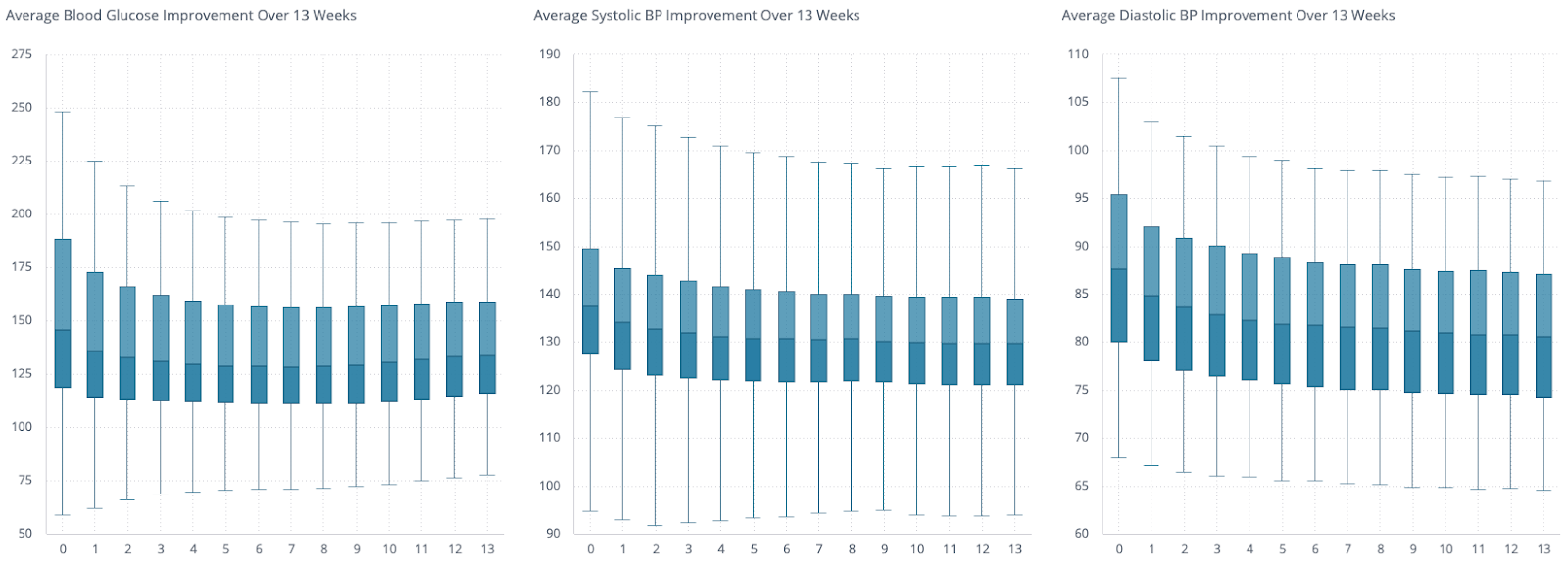Improve patient adherence with remote care

Beyond the physical health implications, chronic diseases can take a toll on the mental health of patients as well. For example, depression is two to three times more prevalent in diabetes patients. In a recent study of 1,106 patients enrolled in a Validic-powered remote diabetes management program, one patient, echoing the sentiment of many, said: “Living with diabetes is non-stop. I felt a burnout and was not managing my A1C well; it would yo-yo.”
Well-designed remote care programs can have a dramatically positive effect on not just patient self-management adherence and health outcomes, but also overall patient satisfaction, follow-up visit attendance, and hopefulness in a person’s ability to manage their disease.
What is a “well-designed” remote care program?
Somewhat paradoxically, a well-designed remote care program isn’t necessarily one that has daily patient “engagement” features or interactions. Rather, at Validic, we believe a well-designed remote care program makes the technology as invisible as possible for the patient. For example, people should be able to measure the readings they need to measure (e.g., blood glucose) with a connected device and, if everything is fine, just put the meter away and go about their day, not respond to a text message, click a link, or open an app to check in. When something is off track, a simple reminder or a brief follow-up interaction asking a few questions is often the best way to help keep patients engaged, not 20-question surveys and videos.
Our data bears this out. Across more than 160,000 people that have participated in Validic programs, 75% of them are still actively capturing and sharing their metrics on a daily basis 90 days after enrollment.
A commitment device leads to real clinical improvement
Across the same 160,000+ people, we have seen real clinical improvements in blood glucose and blood pressure control. The intervention of measuring values does not, itself, result in the improvement. Rather, patients know that they have a care team standing at the ready if something trends in the wrong direction, including deviating from the measurement schedule, which serves as a commitment device.
One person’s comment in the follow-up survey says it best: “Love the fact that they get my results right away and this also makes me want to take better care of myself.”

Optimism and hopefulness
After enrolling in a Validic-enabled remote care program, the same patient quoted above said: “I feel very supported! I feel like I have an entire team of people behind me.” Across 1,106 respondents, the same study showed statistically significant improvements in: “I feel confident in my ability to manage my diabetes” and “I am capable of handling my diabetes now.”
Patient satisfaction
Across 1,106 patients, more than four out of five (84%) said they would recommend the program to a family member or friend, and stated that the program positively affected their care (weighted average 4.5 out of five). While not an element of the studies Validic has conducted to date, numerous studies have shown there is real financial benefit to health systems for improving patient satisfaction. For example, this study found that “a positive patient experience is associated with increased profitability and a negative patient experience is even more strongly associated with decreased profitability.”
Patient retention & stickiness
People are happier with their healthcare when they feel like the people taking care of them are working well together. In our program, the most-cited reason for high satisfaction with the program (70%) was that patients said they felt the program improved coordination and hand-offs between care team members. When the entire care team has the same information about a patient’s self-management available at their fingertips directly in the patient’s chart, it saves the care team and the patient time and frustration.
In summary
Remote care programs do not just lead to better self-management of chronic diseases and improved clinical outcomes. They also improve patient satisfaction with the health system, patient retention and stickiness to the organization, and optimism in their ability to live with their conditions by creating a stronger bond between the patient and their care team.
If patient satisfaction and retention are top of mind for your organization, we’d love to talk with you about how Validic can help!